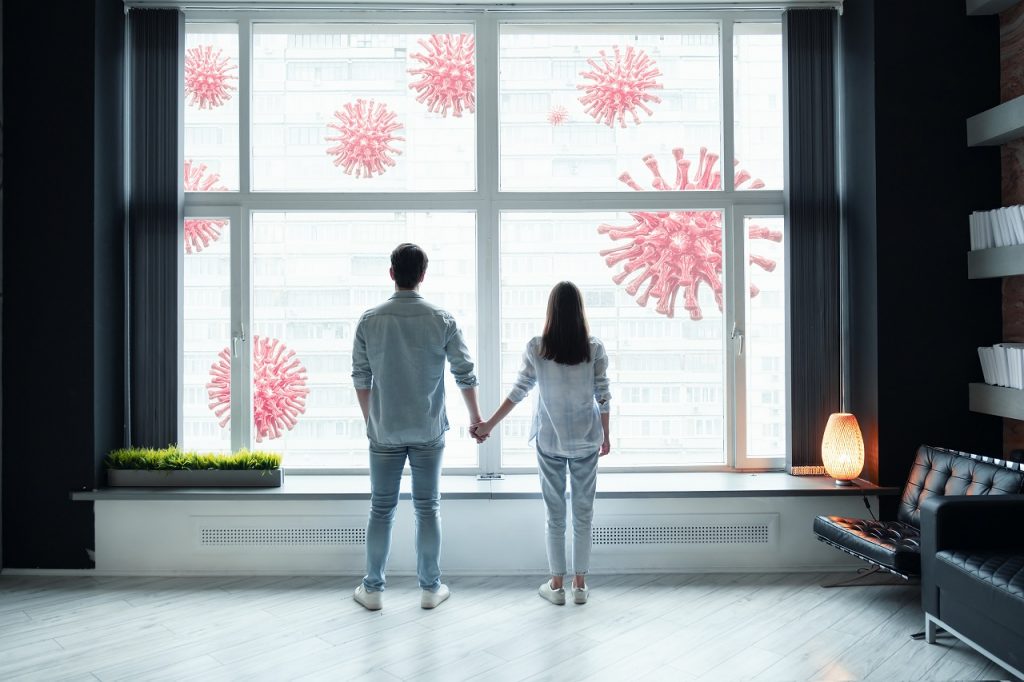 With COVID-19 still spreading like wildfire and the resulting shortage of medical facilities, people have opted to self-isolate at home. Although hospitals and doctors are best to help you recover fully, here are some tips which will help you safely isolate yourself at home with your family.
With COVID-19 still spreading like wildfire and the resulting shortage of medical facilities, people have opted to self-isolate at home. Although hospitals and doctors are best to help you recover fully, here are some tips which will help you safely isolate yourself at home with your family.
Who Needs Home Isolation?
Home isolation is for someone who has tested positive or is suspected to be positive. The purpose here is to recover fully and stop the contagion. Home isolation is not an option for patients who are infected and above 65 years of age or have other comorbidities. They need to be hospitalised in isolated wards.
What Essentials Will You Need?
Apart from the basic necessities of water, food, clothing and shelter, a COVID patient needs much more during isolation. A quick list will include:
- Thermometer – to keep a regular check on body temperature
- Oximeter – to ensure that your reading is above 90-95%, or else you may need supplemental oxygen.
- Exhaust or a table fan, working like an exhaust to draw in the fresh air and recycle the virus-laden room air.
- You will also need your doctor prescribed medications and a smartphone to stay connected with the doctor and your community.
How Can You Safely Isolate Yourself?
There are a few rules to safely isolate yourself at home with your family in the adjacent room:
- Recovery happens best during rest. Hence make sure to follow the circadian rhythm and have a good night’s sleep. Wake up and soak in the sunshine to get your dose of vitamin D from your room window.
- Breathe deeply, do pranayama or follow the Win Hoffman breathing method to strengthen your respiratory system. Sleeping on your stomach allows your lungs to expand fully on the backside. So practice it daily for a few minutes.
- Drink 2-3 litres of water to flush out the toxins from your body. Include a herbal Kadha in small quantities too. If possible, add lemon juice to it to get in Vitamin C to combat the virus.
- Eat a lot of fresh fruits and vegetables to load up on antioxidants to fight off the inflammation. Feed the gut bacteria a healthy dose of probiotics to strengthen the immune system. Avoid non-vegetarian food and alcohol during the isolation.
- Exercise, if you have the strength, to supply oxygen to every cell of your body. Confined within your room, you may just get enough space to do yoga or spot walking.
When Should You End Isolation?
Generally, 14-17 days are more than enough for home isolation. You need to make sure that you do not have any fever for at least three days before ending the isolation period. Also, it is important to get tested once again to check if you’ve fully recovered.
Staying isolated at home is a challenging task not just for you but your family too. They feel helpless as they are unable to care for you. And you might feel bogged down with solitary confinement. Nevertheless, you must ensure to follow proper sanitation methods and clean your room.
We hope this article helps you. For more, check out Healthy Reads or tune in to LIVE sessions by experts on GOQii Play.
To get more expert advice on dealing with post-COVID recovery or general health issues, subscribe to GOQii and get in touch with your personal coach now: https://goqiiapp.page.link/wssu
Stay home, stay safe and #BeTheForce



